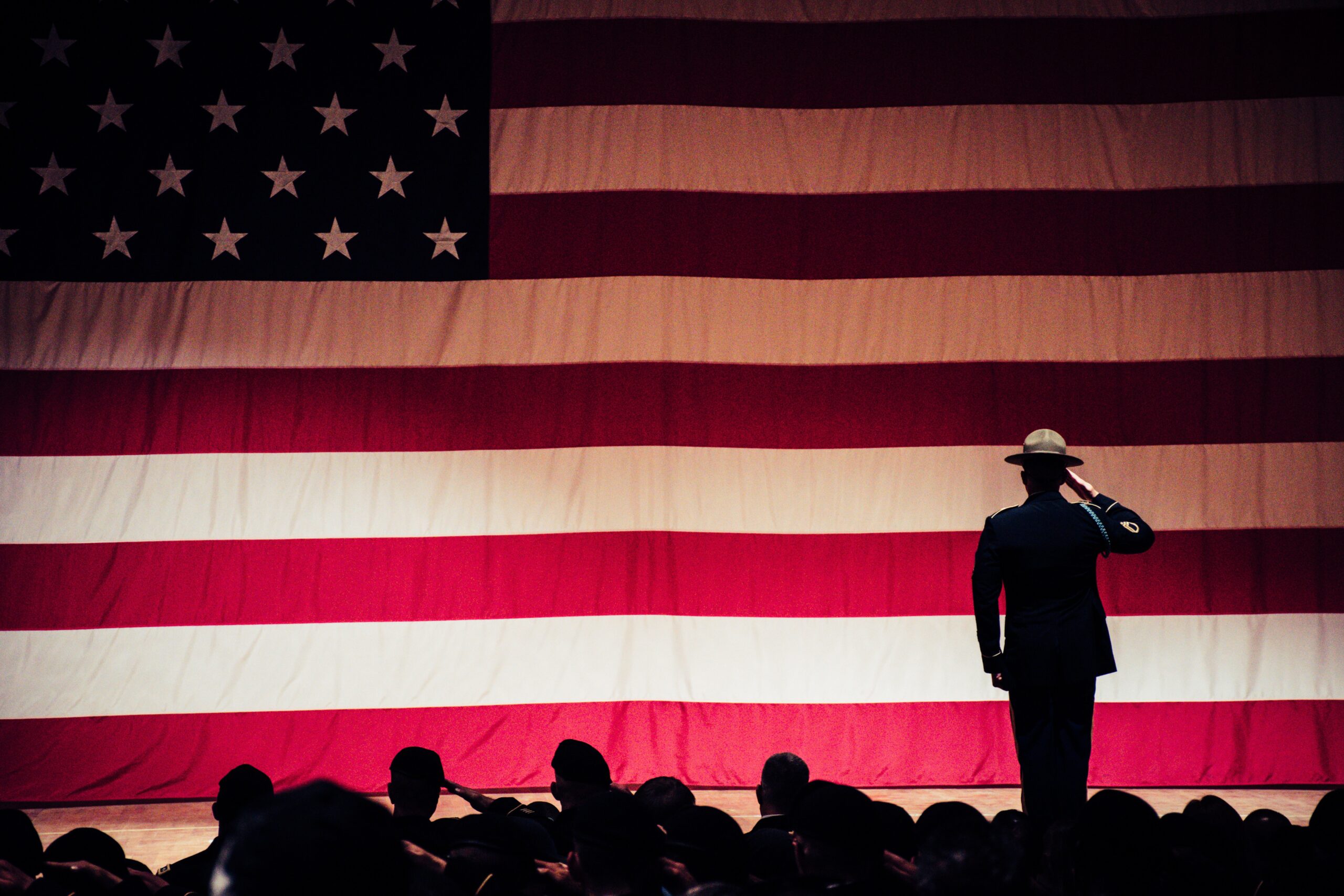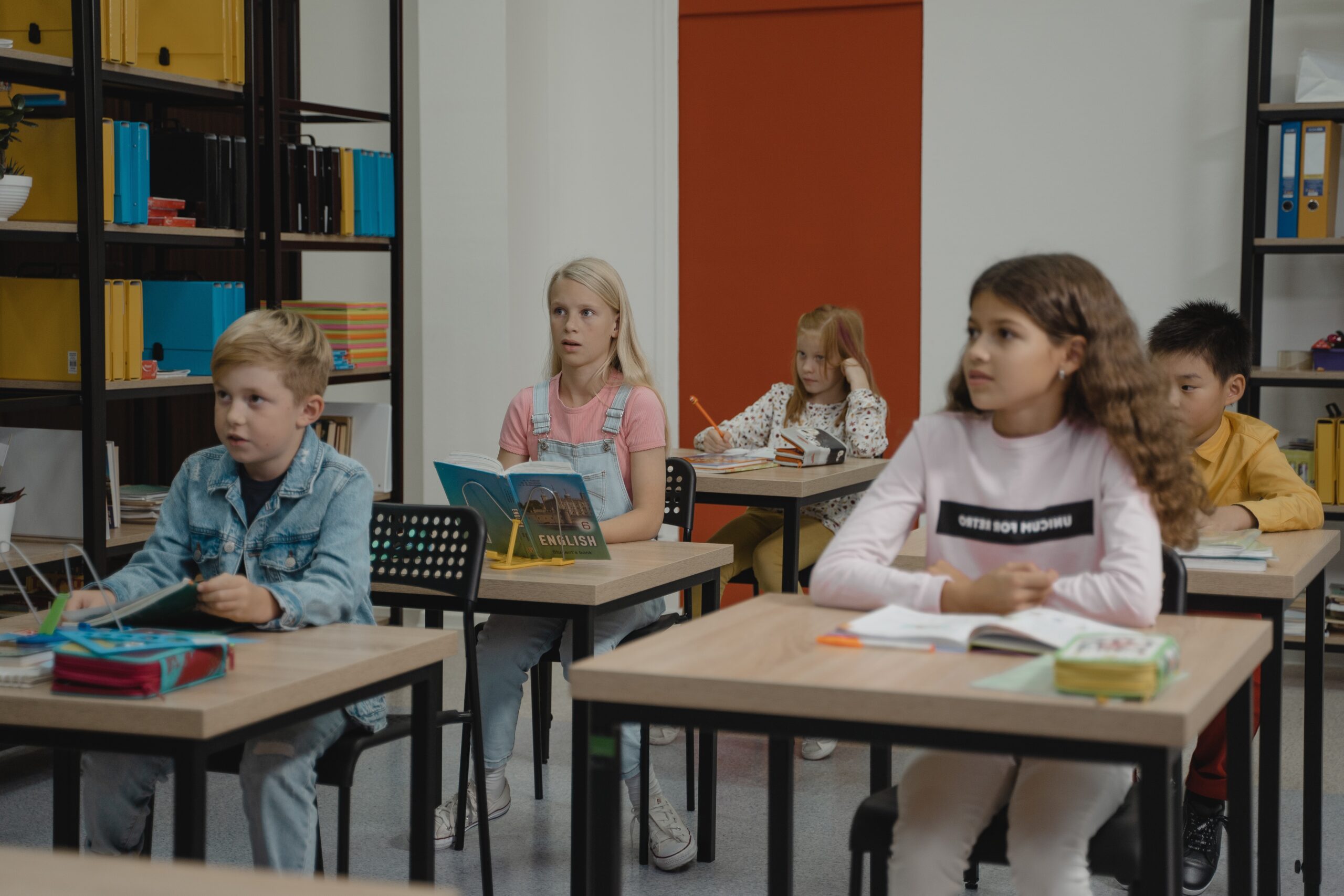Editors’ note: It’s sometimes called an Odyssey. It’s sometimes called a gift. It’s often called everything in-between, but when we look at life, it feels like a quest. That’s why we’re giving all of April to the Life Quest(ions) that people have always wanted the answers to. Here’s what we did: We asked hundreds of people what quest and question they’ve never been shown or given the answer to even though it’s something they’ve always wanted to pursue. Then, we pursue it and provide the answers! Next up, we’re looking at greed and how to live without it.
Letter from Genevieve Walker (fictional), a 3rd Grade teacher addressed to the parents of Julia Peters (fictional), a child of a military family.
Dear Mr. and Mrs. Peters,
I write to you out of concern for your daughter, Julia. I understand that you moved to this area recently due to your status as a military family. I imagine that your family may be overwhelmed with the move, and may be experiencing concern, worry, panic, or loneliness with this new, yet all-too familiar situation. Further, I want to thank you for your family’s service to this country and wish Mr. Peters all the best on his deployment to Afghanistan.

Deployment and military-related movement can result in concern, panic, and loneliness for family members. (Image created by: Brett Sayles)
I want to make Julia’s transition into our school as smooth as possible. I plan to introduce more journaling and creative work into the classroom, and have proposed to the Principal a schoolwide card-making activity for students to learn about what service members do and extend their appreciation. Hopefully, some of these activities will make Julia feel welcomed and seen, and give her an opportunity to express and validate the feelings she has regarding Mr. Peters’ deployment.
Julia has mentioned that Kingston Elementary is her fourth school! Her academic performance is far above the class average; her assignments are organized, timely, and she is well-spoken. She is cooperative and flexible during group work, and is a natural leader among her peers.
Research informs me that many children of military families have strong social skills and are adaptable to new situations – Julia is no exception to this trend. Her peers find her friendly, bubbly and interesting, and she appears to fit in well. When some of her classmates asked her, “Where are you from?” she responded cleverly by saying, “I’m from Earth…duh!” She is kind towards everyone, even kids with whom she is not very close.
Despite a smooth-seeming adjustment into Kingston Elementary, I am concerned that Julia is quite lonely. The other week, the students were brainstorming a short essay on the topic of home. Julia never turned in her assignment. In the trash near her desk, I found a crumpled piece of paper with the word “home” written on it and a large question mark underneath.

Schools are often unprepared to help children of military families work through unique challenges. (Image created by: Tima Miroshnichenko)
I understand that military children can struggle with this idea of home when they move around so much. Julia’s work reminded me of the following quote that struck me in my undergraduate research: “Home is not just a matter of feelings and lived experience but also of cognition and intellectual construction: people may have a sense of home even though they have no experience or memory of it.” In her young age, I believe Julia – like other military kids – is having trouble grappling with the idea of home as an abstract concept rather than a concrete one.
I worry that Julia is struggling or hesitant, to form deeper connections with her classmates, and may be feeling detached. A source I read noted that “each move involves leaving behind past intrapersonal successes and proving oneself in a new environment, which can be emotionally and psychologically tiresome…individuals become too exhausted to invest the time and energy to form new ‘credentials’ that they become withdrawn from their surroundings.” It would not surprise me if this is why Julia does not seem to give out much information about herself, and tends to deflect questions concerning her personal experiences.
Children in military families often grapple with feelings of loneliness, restlessness, and a sense of rootlessness due to frequent moves and the loss of a familiar environment. Although the kids are allowed to decorate their personal spaces, Julia chose not to. To me, this suggests that she is worried she may move again. I also learned that children of military families may be more prone to certain mental health difficulties, like depression or anxiety, and can be subject to psychological stress, fears of danger, noticeable anger, worry, or sense of loss when parents leave on deployment and are subject to new risks.
While I do not feel that Julia experiences these more severe mental health challenges, I would like Julia to meet with our guidance counselor. I believe she internalizes her feelings and worries that expressing her emotions amounts to complaining.
Julia is a bright student and I want to make sure that she is supported by the school during this transition. I do not have much experience teaching kids of military families, as military status is rarely disclosed towards schools.
Please let me know if what I have said resonates with you. If I can be of any assistance, I am happy to help. I’m sure that this move also creates challenges for you as parents, and I hope that you feel that our school can be a support network for your family as well. I look forward to hearing from you!
Best,
Genevieve Walker
3rd Grade Teacher: Kingston Elementary, Virginia Beach VA
Upon finding this letter from her teacher years later, Julia Peters (fictional) reflects on its contents in her personal journal.
I found this letter that my 3rd grade teacher, Ms. Walker, sent to my parents after we moved to Virginia Beach. I remember feeling anxious and scared, even though I had moved three times prior. I ended up loving that school; I didn’t realize that it was because I had someone there who gave me the attention and resources I needed.
Being new got easier with each move, and it’s funny to hear how good I was at being the new kid. I remember having countless teachers who couldn’t have cared less that I was new or that my dad was in the military and left me to fend for myself.. Immediately after I read that letter, I researched military kids’ experiences, and one woman wrote, “I still feel rootless and restless, stir crazy and uncomfortable with people knowing me for too long.” I felt that when I had just moved to Virginia Beach. I felt it during every other move, and still feel it now sometimes.

Military children may deal with feelings of loneliness, restlessness, and rootlessness. (Image created by: Daria Obymaha)
I guess I have Ms. Walker and my parents to thank for getting me into therapy. I remember that I didn’t like it and at first, seeing the guidance counselor made me feel even more different from the other kids.
I remember one meeting with Mrs. Jamison, the guidance counselor, in particular. We hadn’t heard from my dad in a few days, which was strange, and I completely fell apart. I worried that my dad was injured or dead, and my mom was even more stressed than I was. Child reactions are negatively affected by caregiver stress and wavering mental health, and because my mom was dealing with fear and anxiety too, I felt completely alone.
When I came to school that day, Ms. Walker could tell that something was wrong. She suggested that I go to see Mrs. Jamison, and upon entering her office, I didn’t say anything–I just started to cry. She gave me a huge hug, and she asked me how I was feeling. No one had asked me that yet. Communicating my feelings to her felt like a huge release. I told her that I felt alone; neither my dad nor my mom was available to help me. I was scared: where was my dad? Was he okay? She assured me that my dad was most likely safe, and that wherever he was, he loved me and was thinking of me. She showed me some of the cards that my classmates had made to thank service members, and it reminded me that other people cared about what my family was going through. I was reminded that I had a support network.
Reading about that assignment about home that I never completed makes me think about how I reconciled with my own experiences as a military kid. Starting over got easier, to the point where it became a habit. Home was never one city or state for me, and it wasn’t a house either. Home was the feeling of togetherness I felt when my dad returned from deployment each time; roots were those connections I built over time, knowing that even if I left, they would still be with me.
I feel for that little girl who rarely felt secure and grounded, even though she tried so hard to seem like she was. I wish she knew that if she stopped trying so hard, she might be able to find peace within all that motion.
 NOLAbeings
Multimedia artist Claire Bangser created NOLAbeings as a portrait-based story project that marries...
NOLAbeings
Multimedia artist Claire Bangser created NOLAbeings as a portrait-based story project that marries...
 Data corner: Adobe Suite (create a PDF, social media graphic, presentation, edit a photo and video
Data corner is where you go to work with analytics and top tech skills. It takes on everything from PERL and SQL to Canva and Sprout Social.
Data corner: Adobe Suite (create a PDF, social media graphic, presentation, edit a photo and video
Data corner is where you go to work with analytics and top tech skills. It takes on everything from PERL and SQL to Canva and Sprout Social.
